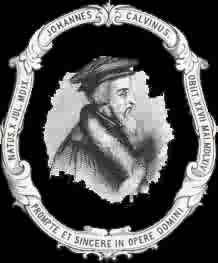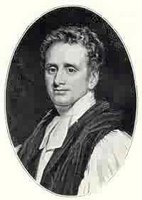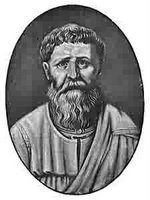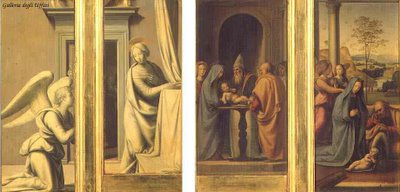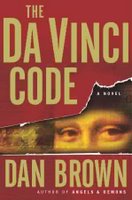Duty, Means, and Ends
Kant believed that the underlying nature of humans is good, albeit there is an evil principle at work which hampers humans from reaching their highest moral potential. Kant believed that every human goes through this struggle since the fall of our parents (Adam and Eve). In the third chapter of Religion Kant characterizes this struggle as such:
"The combat which every morally well-disposed man must sustain in this life, under the leadership of the good principle, against the attacks of the evil principle, can procure him, however much he exerts himself, no greater advantage than freedom from the sovereignty of evil. To become free, “to be freed from bondage under the law of sin, to live for righteousness” [Romans 6:18] —this is the highest prize he can win."
(Immanuel Kant, Religion Within the Limits of Reason Alone, translated by Theodore M. Greene and Hoyt H. Hudson (New York: Harper & Row Publishers, 1960), bk 3, 85.)
From this struggle comes religion via human culture, according to Kant. In other words, humans know the good which they ought to do but find it impossible to perform this good. This is due in part to a weakness of the will. The operative point in the previous comment is the idea that ‘humans know the good.’ Because humans know the good which they ought to do, there is a moral obligation, or duty to do the good. However, a problem arises in that people are incapable of doing this good on their own.
(It is important to note that Kant does not believe that humans have the capacity to reach the highest good on their own. The fact of radical evil keeps mankind from attaining this highest moral good and Kant believed that intervention from the highest moral Being was necessary. See Stephen Palmquist’s article “The Kingdom of God is at Hand! (Did Kant Really Say that?)” History of Philosophy Quarterly 11, 4 (October 1994), and Elizabeth C. Galbraith’s article “Kant and Richard Schaeffler’s Catholic Theology of Hope,” Philosophy and Theology 9, 4 (date unknown), 333-50.)
Thus, Kant proposes two elements which are needed in order for man to fulfill his moral duty. These two elements are an ethical commonwealth under divine legislation and a supreme or highest moral Being.
(See Religion, bk 3, div. 1, sec. 2 & 7.)
As we examine these two elements in greater detail, Kant’s concept of duty[1], means, and ends should also be examined. Of course in the context of the Kantian kingdom of God, these three concepts help to establish this kingdom. According to Kant, “the good principle, which resides in each man, is continually attacked by the evil which is found in him and also in everyone else.”[2] Furthermore, this evil is a result of mankind’s departure from unity with one another. In other words, despite the good that underlies each human nature, men lack a principle which unites them. Thus, men corrupt each other.
([1]The concept of duty in Kantian philosophy could occupy an entire paper since it involves so much. For the purposes of this research, I will narrow Kant’s notion of duty to his concept of the Kingdom of God. While it is important to point out that it is incumbent upon readers of Kant’s philosophy of religion to gain a good grasp on what Kant means by duty in order to understand Kant’s moral, political, and religious philosophies, it is beyond the scope and length of this paper to discuss Kant’s idea of duty in such exhaustive detail. Therefore, it is assumed that when here duty is applied to Kant’s Kingdom of God, the reader will understand the nuances due to an overall understanding of duty in Kant’s philosophy. See Kant’s Lectures of Ethics, Grounding for the Metaphysics of Morals, Critique of Practical Reason, and Religion Within the Limits of Reason Alone. Also see Howard Caygill’s A Kant Dictionary (Oxford: Blackwell Publishers, 1995), under the insert Duty.)
([2]Kant, Religion, bk. 3, div.1, sec. 2, 88.)
From this fact, Kant declares that there is a duty, not of each individual man toward one another but “of the human race toward itself,”[3] to bring back this unity which is needed to gain the highest good. This is confirmed by Kant when he declares, “For the species of rational beings is objectively, in the idea of reason, destined for a social goal, namely, the promotion of the highest as a social good.”[4] Here Kant speaks, morally, politically, as well and religiously. While it seems that Kant is speaking mainly in terms of a political theory (which in fact he is), Kant is also, nonetheless, speaking in moral and religious terms. This is so because this effort to leave what Kant calls the ethical state of nature is in fact a religious and moral act on the part of man to become apart of the ethical commonwealth. And this ethical commonwealth is what Kant calls the visible church.[5] Kant means by a visible church, “the actual union of men into a whole which harmonizes with that ideal.”[6]
([3]Ibid., 89.
[4]Ibid.
[5]It is interesting to note that the concept of an invisible and visible church is a Calvinistic notion from none other than the great reformer John Calvin. Of course, it is more than likely that Kant gets this idea from his Pietistic roots.
[6]Kant, Religion, bk. 3, div.1, sec. 4, 92. (Emphasis in the original). )
But what is “that ideal?” By ideal Kant seems to mean the ethical commonwealth which is under divine moral obligation as an actuality. In other words, when the moral union of men is finally satisfied in the ethical commonwealth which is under divine moral obligation, this creates the ideal rule or state. The invisible church is the “mere idea of the union of all the righteous under direct and moral divine world-government, an idea serving as the archetype of what is to be established by men.”[7] Here Kant is delegating duty, in the kingdom of God, as the moral obligation to become a part of the ethical commonwealth which is under divine moral rule. Every man, being rational, is without excuse to become apart of this ideal. Thus, as a duty, it is incumbent upon men to practice their moral obligations in order to unite and thwart the principle of evil which has separated them.
([7]Ibid. (Emphasis added).)
Furthermore, Kant believed the ethical commonwealth is realized via human organization through the formation of a church, but this formation of a church does not resemble current political constitutions (i.e. monarchical, aristocratic, nor democratic).[8] Rather “The Constitution of every Church Originates always in some Historical (Revealed) Faith which we can call Ecclesiastical Faith; and this is best founded on a Holy Scripture.”[9] Perhaps here more than anywhere else Kant demonstrates his Protestant Pietistic roots. For example, Kant delineates that this ecclesiastical faith in association with pure religious faith[10] is a means “of public union of men for its promotion,”[11] and is not “provided for adequately through tradition, but only through scripture.”[12] In other words, Kant asserts that through tradition (i.e. pure religious faith) as a means, ecclesiastical faith (i.e. the ethical commonwealth) can be realized only if it is established through scripture. Thus, Kant affirms that pure religious faith is the means by which the ethical commonwealth is realized.
Moreover, Kant believed and taught that people should be treated as ends in themselves and not as means to an end. This is an important part of Kant’s overall moral and religious philosophy, since Kant affirms that it is this ‘use’ of people by other people as means that has contributed to the separation of men. For Kant, unity is necessary for the ethical commonwealth to come to fruition. Thus, people are ends and not means[13] in this ethical commonwealth and when we, as a group of people, realize that people are ends, unity will be easier to achieve. Stephen Palmquist in his article The Kingdom of God is at Hand! (Did Kant Really Say That?) comments on this by declaring, “The realm of ends is simply the term appropriate to the practical standpoint for the ideal which, viewed from the judicial (religious) standpoint, is properly called the kingdom of God.”[14]
[8]See Religion bk. 3, div. 1, sec. 4.
[9]Kant, Religion, bk. 3, div. 1, sec. 5; 94.
[10]By ‘pure religious faith’ Kant means the traditional buildings, temples, churches, and those thing associated with the church such as priests, divines, and the ordinances performed in and through these things.
[11]Kant, Religion, bk. 3, div. 1, sec. 5; 97.
[12]Ibid. (Emphasis in the original). It should be noted here that when Kant refers to Scripture he is not speaking in terms of dogma or doctrine. Rather Kant views Scripture in moral terms. In other words, the Scriptures are a moral example which all ought to follow.
[13]This stems from Kant’s second formulation of the categorical imperative which is found in Foundations of the Metaphysics of Morals, translated by Lewis White Beck (Indianapolis: The Liberal Arts Press, 1959).
[14]Stephen Palmquist, “The Kingdom of God is at Hand!” (Did Kant Really Say That?),” History of Philosophy Quarterly: 11, 4 (October 1994), 426.
